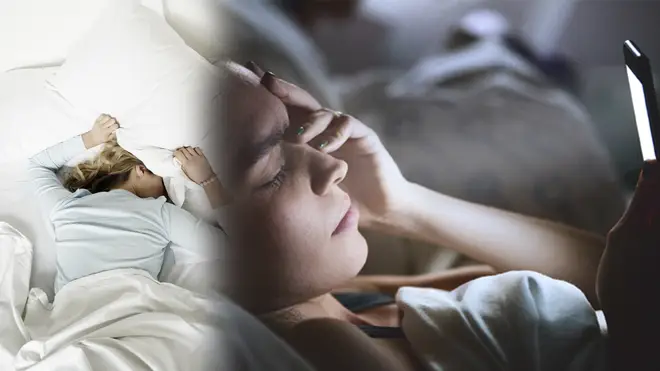Sleep expert reveals top four tips to improving sleep during lockdown
13 January 2021, 11:26

Are you struggling to get a good night sleep amid the pandemic? Well, you're not the only one.
Getting a good nights sleep is so important for our physical and mental health, but amidst the global pandemic, more and more people are struggling to get a good eight hours.
Whether you're sleep pattern has been disrupted, or anxiety around the pandemic is keeping you up at night, you are not alone.
READ MORE: Eight fun nature activities you can do with the kids during lockdown

Studies have found that people's sleep has been significantly impacted by the current climate, with the number of men experiencing poor sleep rising from 11.9% to 16.5%, and the increase among women jumping from 18.9% to 31.8%.
However, there are ways to help improve your sleep quality and length, says Silentnight’s sleep expert Dr. Nerina Ramlakhan.
She's revealed her top four tips on improving your sleep during lockdown:
1. Take technology breaks
“An effective habit to crack when settling down for the evening is stopping the ongoing scrolling of your mobile phone or tablet. The blue light that is emitted from the screens, suppresses melatonin, a hormone that dictates your sleep pattern. Taking regular breaks from technology, especially before bedtime, can help maintain that important sleep pattern throughout the night – especially when much of the news agenda is so unsettling.”
2. Avoid caffeine
“Caffeine is a stimulant that promotes alertness, which is perfect for first thing in the morning, but detrimental at night when you’re trying to drift off. Try to avoid drinking caffeinated drinks after 2pm, this will allow enough time for the caffeine to leave your system before bedtime. It also increases your cortisol (stress hormone) levels, so avoid caffeine if you’re feeling particular stressed as this will encourage your levels to go up rather than reduce them.”

3. Eat breakfast
“Breakfast is the most important meal, as it sets you up for the day, however it also helps you at night as well. Breakfast helps to regulate our melatonin production – the hormone we need for a good night’s rest. Make sure you pick a breakfast dish that is rich with sleep boosting foods, such as seeds, nuts, whole grains, yoghurt and fruits – bananas and oranges in particular. All of these food items contain nutrients that enhance the production of the hormone, allowing your sleep routine to benefit.”

4. Take regular breaks through the day
“Our energy levels run on 90-minute cycles, so it’s very important to take a break every 60 – 90 minutes. These breaks can simply involve leaving your desk for 5 minutes to take a walk, reading a book or making a cup of tea. Taking these little snippets of ‘me time’, especially when you’re working from home, allows you chance to take a breather and re-focus your mind.”
“Sleep is incredibly important for the nation’s overall health and wellbeing, and whilst the current pandemic isn’t a factor we can change ourselves, our sleep pattern is. Creating a healthier sleep routine and changing habits should allow for a better, rejuvenating night’s rest throughout 2021.”
READ NOW: Full list of shops staying open in England during latest lockdown




































